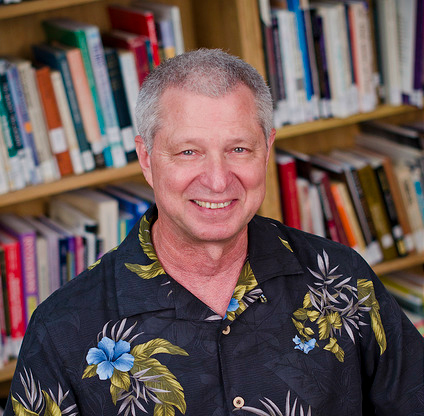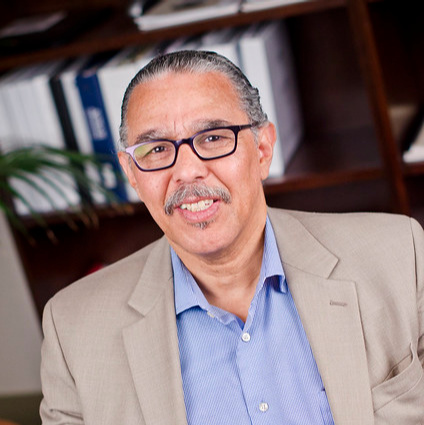 Word travels swiftly through the alumni channels of AULA’s low residency MFA in Creative Writing. Far-flung writers who rarely, if ever, engage together in person, we are nonetheless communicators whose favorite pastimes include such sport as report, recall, reflect, recount, respond. So when word came down the pike of MFA Professor and Chair Steve Heller’s impending retirement, the story-swapping commenced. We traded among ourselves anecdotes and craft or career advice from Steve’s mentorship and seminars over his 16 years at Antioch.
Word travels swiftly through the alumni channels of AULA’s low residency MFA in Creative Writing. Far-flung writers who rarely, if ever, engage together in person, we are nonetheless communicators whose favorite pastimes include such sport as report, recall, reflect, recount, respond. So when word came down the pike of MFA Professor and Chair Steve Heller’s impending retirement, the story-swapping commenced. We traded among ourselves anecdotes and craft or career advice from Steve’s mentorship and seminars over his 16 years at Antioch.
I compare my experience with Steve Heller to the scene in the movie, Close Encounters of the Third Kind. Townspeople are standing in the dark on hilltops watching dozens of small flying saucers zoom by, and they’re thinking those small flying saucers are “It.” They’re the “One,” the “Answer.” Then this enormous, enormous spaceship appears on the horizon and everyone’s mouth drops open when they realize, “Oh, wait a minute. No, THIS is It.” To me, Steve Heller is that enormous spaceship appearing on the horizon. As a teacher, editor, and mentor, Steve Heller occupies his own category. (Jessica O’Dwyer)
Thirty-two MFA cohorts have received their degrees from Steve Heller, so stories abound. The gentle-mannered, Hawaiian-shirted Program Director (whose likeness and spirit were precisely captured by the Pali cohort in a custom bobble-head doll) has inspired and influenced countless writers over the years. Chats about craft over lunch, dreams over (gin) martinis, purpose over (very) late-night emails. Echoed throughout the stories is a deep gratitude for Steve and his earnest belief in each individual’s potential. Over and over, former students relay how a conversation with Steve fundamentally changed for the better their expectations of themselves and what the world will allow them to do, and how they now show up for it.
Life is life and it’s not always easy, but Steve always had a smile on his face, and he always knew how to make a bunch of writers laugh at ourselves — writers who might take themselves a bit too seriously if given the chance. His advice: Always think of what the character wants — it can be different in every scene, but the character always wants something. Figure out what that is and then show how they are getting it and what their interiority is while attempting to do so. (Wendy Dutwin)
Steve is quick to praise the deeds of former students. Likewise, with a humble, self-deprecating humor, he claims no credit for the many accomplishments of the Creative Writing program, as he enumerates the successes of the program team. Still, he can’t hide his pride when he reports that in any list of low-residency MFA programs, AULA, the largest of all California creative writing programs, always ranks in the top five. The Professional Development Semester, created for students who want to extend their MFA in order to polish a manuscript or jump into another genre, has also been a great success; as has Lunch Ticket, the MFA student-run literary and art journal now on its 15th issue; and the addition of a market-bent fifth genre, Writing For Young People. More recent developments include the implementation of a dual degree option with AU’s MA in Urban Sustainability, and, after ten years of planning, the launch of the Santa Barbara-based MFA in Writing and Contemporary Media. Always looking forward, Steve speaks with excitement about new and upcoming developments introduced by Interim Program Chair, Victoria Chang, including partnerships with UCLA Extension, PEN America, and Frontier Poetry.
His leadership was steady and calm. In a program that invites diversity it’s easy to get derailed dealing with such disparate personalities. Steve never seemed rattled, and I know of more than one occasion where he would have certainly had reason to be, yet he navigated the situation with his typical steady, yet resolute manner. He has the ability to see all sides, like a good writer and mentor, and can understand the nuance of each character, their flaws and their strengths. Maybe it’s the Hawaiian thing, just easy going. (Jesus Sierra)
For an MFA student witnessing the constant development of new programs and initiatives, it may be hard to believe that throughout his teaching and administrative career, Steve has maintained commitment to his own creative writing. Quite contrary to the pervasive and insidious trope that says “those who can’t, teach,” as Ross Brown, Director of AUSB’s MFA in Writing & Contemporary Media, recently noted, “Steve Heller can write, and he does write. Forty years’ worth of readers, writers, and teachers owe Steve a tremendous debt of gratitude for all the writing and teaching he has shared with us.”
His style as a teacher could be described as reflective rather than prescriptive, but also very specific and honest. In addition to thorough notes, I really appreciated the conversations we had over the phone and in person about the gaps between what my intentions were for the work and what he was reading, and how I might close those gaps. I felt like he inhabited the work rather than just look at it objectively— there is nothing more gratifying for a writer. (Malia Gaffney)
The truth is, throughout his career at Antioch, Steve Heller has awakened at half-past-two, in the dead of night, to write. For him, whose daylight hours were dedicated to administration and teaching, it might simply have been a matter of the logistics of being both professor and artist. Creative writing is a calling, he says to students. And when few were awake and no administrative meetings were scheduled, Steve responded to that call. A writer, he tells his MFA students, must write at all costs. Is it a command or an observation?
He’d say: Write no matter what, whenever you can, however you can. Don’t make excuses if you’re a writer. Your soul will die without the fuel it needs, because writing is that fuel. (Wendy Dutwin)
For many years, at daybreak, the transition from night to day, Steve turned his attention to teaching. But like the dawn and the gloaming, those hybrid hours between dark and light when delineations are not so black and white, for Steve, teaching and writing have long informed each other. Of his creative work, he will tell you that in general, he has always written for two groups: the dead and the not yet born. He describes his literary work as a conversation he’s having with those writers who came before and influenced him, and the ones still to come. But Antioch, Steve says, became like a bridge between the past and the future. Though his own work does not tend toward the topical, Antioch, he says, allowed him “to be actively involved in having some impact on writers lives – with the issues and institutions and ideas that are important to them now, and which have some impact on society today.”
What he demonstrated was that kindness and calm are such important human qualities. Talk authentically and from the heart about complex issues that need to be talked about. (Alistair McCartney)
Perhaps skeptically at first, then awe-fully, MFA students eventually accept Steve’s promise-slash-challenge that “this program will change your life.” But reminiscing about his tenure at Antioch, Steve talks about how the program has changed his life. While the best teachers know that they are only teaching if students are learning, the most lasting impact comes from those teachers who embrace that they, too, are students. Antioch, Steve says, filled the gap in the conversation he’d been having with the dead and the not yet born. At Antioch, he taught and learned from students whose experiences and backgrounds authentically reflect the country. They, and the Antioch community, have given Steve, “the most important educational experience of my life.”
He’d say to me, at times your work is as good as anything on the shelves. All you need to do is figure out the times when it isn’t as good as what’s on the shelves. Fix that, and you’re on your way. (Andre Hardy)
Wendy Dutwin, a former mentee who currently lives in Paris, France, still has her notes from Steve. She recently reflected on his quiet, humble wisdom. “He talked of the urgency of writing; that a writer must write at all costs, that this is the social justice we can bring to the world through these gifts we continually cultivate on the page. You must write, Wendy, he would say. Where is your collection? The world needs your words.”
I took a long, hard detour away from those words and realize that what Steve was saying is that the soul of a writer dies if it is not writing. And as a result, a part of the world does, too. (Wendy Dutwin)
Despite the many years’ relegation of his own work to the hush hours, Steve’s writer-soul has a strong pulse. As he transitions away from Antioch, his goal now is to make his ‘70s his most productive creative decade. Since a research trip in January to Lana’i, the setting for his novel Return of the Ghost Killer that has been in progress since 1990, he’s completed the book and is now working through a final draft one more time. The first of a trilogy that is both suspenseful mystery and sweeping multi-family drama, the novel is set entirely on the Hawaiian island of Lana`i, once known as The Island of Ghosts. It begins: “Everyone’s life is a ghost story.”
Though in my MFA studies I was not one of Steve’s fiction mentees, I had the immense luck of his mentorship through my role as editor of three issues of Lunch Ticket. We’ve kept in touch over the years. As Steve retires his position as MFA Program Director to follow the Ghost Killer trail, I share these words from a recent email, which ring as important as anything in Rainer Maria Rilke’s Letters to a Young Artist. Though written to me, like so much of Steve Heller’s advice, they are not meant only for me:
I have only one piece of advice for you at this juncture: Stay committed. To your writing, to the things you believe in, to the people you care about. In the end, commitment is what matters most. That’s how I was finally able to finish, just recently, Return of the Ghost Killer, after all those years of research and writing. Even an old dog can sometimes complete the race.



